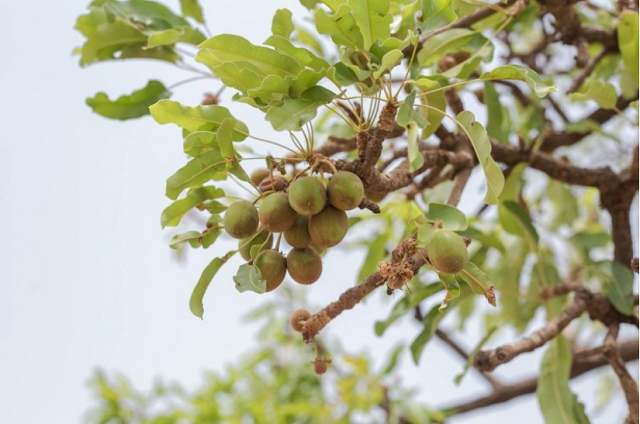
Upfield Shea Sustainability Initiative to grow 6,000 trees in Ghana by 2023
Upfield, the global leader in plant-based nutrition has announced the launch of the first phase of its Shea Sustainability Initiative in West Africa, which will restore about 150 hectares of savannah parkland in the North East Region of Ghana.
The initiative is expected to grow 6,000 shea and other indigenous trees by 2023, an official statement issued to the Ghana News Agency, in Accra said Wednesday.
Upfield, the leading producer of plant-based margarines, spreads and cheeses, with more than 100 brands, announced the initiative as a strategic partnership with Ghanaian landscape restoration firm, Eco Restore.
The company produces well-known brands such as Blue Band, Flora, Rama and Violife, Proactiv, Becel, I Can:t Believe It’s Not Butter, Country Crock and Violife®.
Upfield's shea sustainability initiative is in line with the company's Environmental, Social and Governance (ESG) strategy and its Sustainable Sourcing Policy, said the statement.
The project will seek to create sustainable impact in the company's shea supply chain under three key pillars, including 'improving livelihoods', 'health and safety' and 'parkland restoration'.
"Upfield will work with Eco Restore, to implement sustainability principles in its West African shea sourcing supply chain by implementing environmental protection and regeneration measures," it said.
"A significant piece of Upfield's ESG strategy is to enhance the livelihoods of small holders and plant-based entrepreneurs while preserving nature to ensure a better planet," it quoted Upfield's Global Director of Sustainability & ESG, Sally Smith, when speaking on the project.
"This project will help communities maintain and improve their shea parklands, thereby supporting long term food security, sustainable food systems and economic development."

Managing Director, Upfield West Africa; Moses Bamidele Amao, said: "Our approach with this initiative is to work collaboratively with our indigenous communities; not only to plant the trees but to promote an appreciation for and a culture of preserving the shea parklands until it becomes the norm.
"This in turn creates a ripple effect of sustainable practices in the communities where we source our food ingredients."
For his part, Executive Director Eco Restore, Peter Lovett noted: We are very happy to be partnering with Upfield on this very important sustainability project.
"As an organization that values and is committed to parkland restoration in West Africa, we see this partnership as a win for the community, the long-term resilience of the shea ecosystem in Ghana and the global customers of Upfield."
Earlier in the year, Upfield became a member of the Global Shea Alliance and a registered sustainability partner.
This means in addition to the company's Responsible Sourcing Policy and Human Rights Statement, Upfield's position on shea will be directed by the sustainability guidelines and implementation criteria laid out by the Global Shea Alliance.
The company's newly launched project will feed into the alliance's Action for Shea Parklands' initiative and Shea More Love' campaign, which are both aimed at promoting the sustainable development of the global shea industry.
"The next phase of Upfield's Shea Sustainability project aims to create an enabling environment for the economic empowerment of hardworking Ghanaian women shea collectors and processors through the creation of viable cooperatives, business and financial literacy training, market transparency and good business practices," the statement said.
With its headquarters in Amsterdam, the company's products are in more than 95 countries and have 15 manufacturing sites throughout the world.
The company employs more than 4200 associates.
Eco Restore is a Ghanaian landscape restoration firm that aims to restore millions of hectares of savannah parkland across West Africa and owns nurseries in Tamale (capacity 50.000 seedlings, 50% shea), Nasia and Nakpanduri, whilst partnering with additional local nurseries in north Ghana.
Credit: GNA